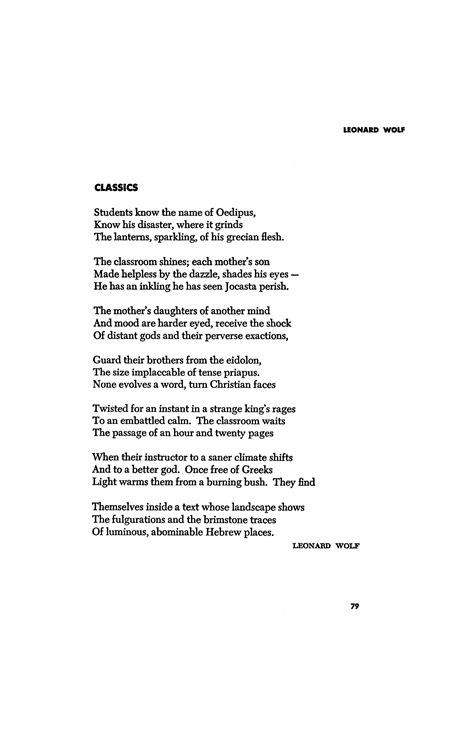A Quote by Alistair MacLeod
Today there is a division between those who write about literature and those who create it. I, obviously, don't think that should be there.
Related Quotes
The real differences around the world today are not between Jews and Arabs; Protestants and Catholics; Muslims, Croats, and Serbs. The real differences are between those who embrace peace and those who would destroy it. Between those who look to the future and those who cling to the past. Between those who open their arms and those who are determined to clench their fists.
We must speak first about the division of land and about those who cultivate it: who should they be and what kind of person? We do not agree with those who have said that property should be communally owned, but we do believe that there should be a friendly arrangement for its common use, and that none of the citizens should be without means of support.
In the future, the great division will be between those who have trained themselves to handle these complexities and those who are overwhelmed by them -- those who can acquire skills and discipline their minds and those who are irrevocably distracted by all the media around them and can enver focus enough to learn.
English is, from my point of view as an Americanist, an ethnicity. And English literature should be studied in Comparative Literature. And American literature should be a discipline, certainly growing from England and France, Germany, Spain, Denmark, and the Native traditions, particularly because those helped form the American canon. Those are our backgrounds. And then we'd be doing it the way it ought to be done. And someday I hope that it will be.
One of the things I always underscore when I teach criticism is that young critics, or would be critics, frequently have this illusion that if they write about music they're somehow part of music, or if they write about movies they're part of movies, or of they write about theater they're part of theater, or write about literature. Writing is a part of literature, we belong the species of literature. If you add all the music reviews together that have ever been written, they don't create two notes of music.
I'm truly blessed to be doing what I've always wanted - CREATE. I have found a freedom that is hard to put into words. I always wondered about my projects - which artists are working on what, and which directions should I take? I don't even think of those things now. I passionately go into my studio and ask myself, what would I like to create today?
My position is that the rate should align with the level of economic development. Because it is always about a balance, a balance of interests, and it should reflect this balance. A balance between those who sell something across the border and those who benefit from a low rate, as well as a balance between the interests of those who buy, who need the rate to be higher. A balance between national producers, for example, agricultural producers who are interested in it.
I'm not much of a correspondent. My letters are not only uninteresting but sparse. I'm glad I don?t have to write for a living. It?s arduous work and the money is very uncertain. On those rare occasions when I wander into a bookstore it amazes me to see the avalanche of literature and semi-literature that is turned out weekly in this country. The people who write these things are either desperate for money or love starved. Why should anyone on a nice balmy day lock oneself in an office and hit a typewriter for hours on end. I think one of the greatest pleasures in the world is not writing.







































